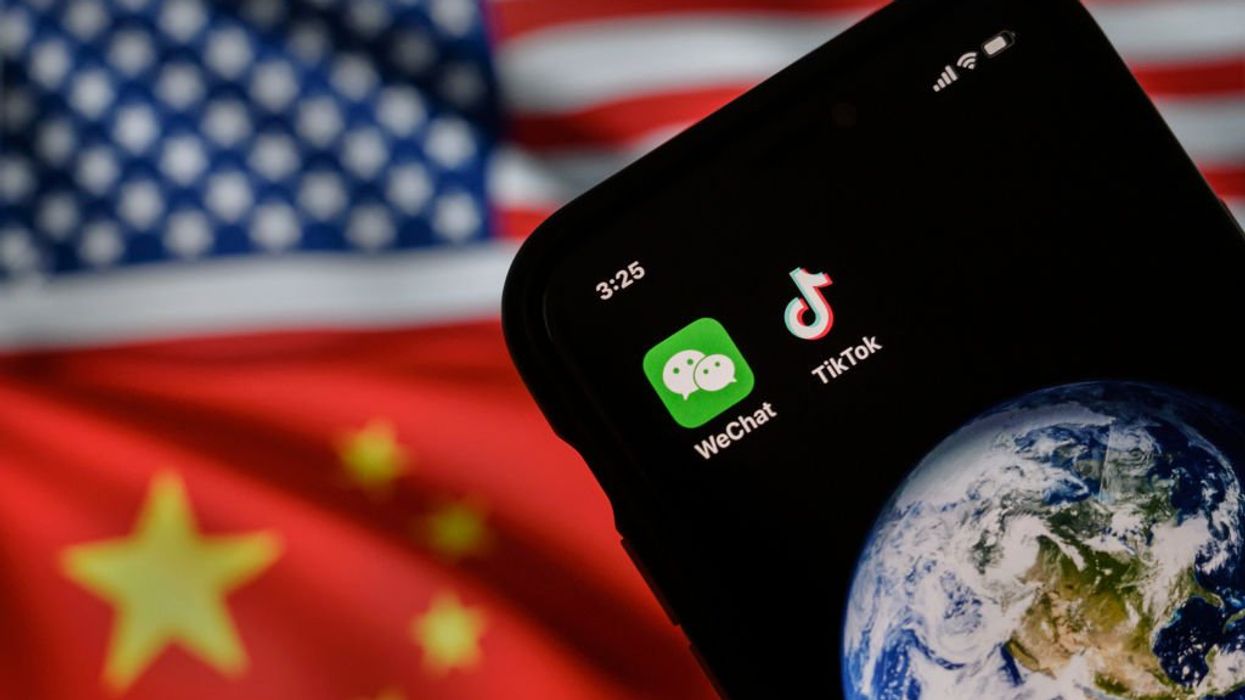
Photo by Kevin Frayer/Getty Images

Conservative backlash against the bipartisan RESTRICT Act is growing as some would-be supporters of the anti TikTok legislation signal concerns about the bill's scope, Politico reported Friday.
"I don't really want Kamala Harris, Joe Biden, and Jake Sullivan seizing my Ring camera, my Amazon Alexa devices, or my iPhone. Do you? Under the [RESTRICT Act], they have that ability," Strive Asset Management Head of Corporate Governance Justin Danhof told Fox News Channel host Rachel Campos-Duffy Saturday morning.
"There's a reason 'swamp creature' National Security Advisor Jake Sullivan endorses and supports the RESTRICT Act," he added.
The RESTRICT Act stands for "Restraining the Emergence of Security Threats that Risk Information and Communications Technology Act."
The bipartisan RESTRICT Act, introduced earlier this month, was sponsored by Sen. Mark Warner (D-Va.). Cosponsors in the upper chamber include 12 Democrats, 13 Republicans, and one Independent.
The legislation is commonly described as a TikTok ban designed to stop China from scooping up Americans' data. The bill reportedly contains no specific mention of Chinese-owned TikTok nor ByteDance, TikTok's parent company, however.
The RESTRICT Act contains lanaguage some legislators characterize as government overreach. Kentucky's Republican Senator Rand Paul, for example, is among its harshest critics.
"There are two main reasons why we might not want to do this: The one would be the First Amendment to the Constitution. Speech is protected whether you like it or not. The second reason would be that the Constitution actually prohibits bills of attainder," Sen. Paul said Wednesday on the Senate floor.
Paul expressed concerns that the bill's vague language is an invitation for unintended infringement on Americans' constitutionally guaranteed rights.
If passed, it would grant the U.S. Secretary of Commerce, currently Gina Raimondo, sweeping powers. The appointed Cabinet official would be empowered to "identify, deter, disrupt, prevent, prohibit, investigate, or otherwise mitigate ... any risk arising from any covered transaction by any person, or with respect to any property," Reason reported.
Reason's Elizabeth Nolan Brown also highlights a concern that the bill may criminalize virtual private networks. Sen. Warner's office denies that it would do so.
VPNs are designed to keep an internet user's digital activities private. VPNs can mask a user's I.P address or encrypt a user's internet connection, for example. Brown argues that the language used in the RESTRICT Act is vague enough that it may indeed disallow VPN use.
"The federal government wants to watch everything you do on the internet. And I mean anything: Any transaction, any search, any click, any scroll," Fox News Channel host Jesse Watters said Wednesday in an interview with South Carolina's Republican Senator Lindsey Graham.
"This is garbage ... this is crazy town," Watters added.
Graham, who appears confused about to which bill Watters was referring, at first said "I don't think I support the RESTRICT Act." Graham was one of its cosponsors.
Meanwhile, other bills circulating in the House with more "teeth" than the RESTRICT Act aim to stop TikTok in a more fulsome way. They include the DATA Act and the ANTI-SOCIAL CCP Act, as Politico reported.
Like Blaze News? Bypass the censors, sign up for our newsletters, and get stories like this direct to your inbox. Sign up here!Sign up here!